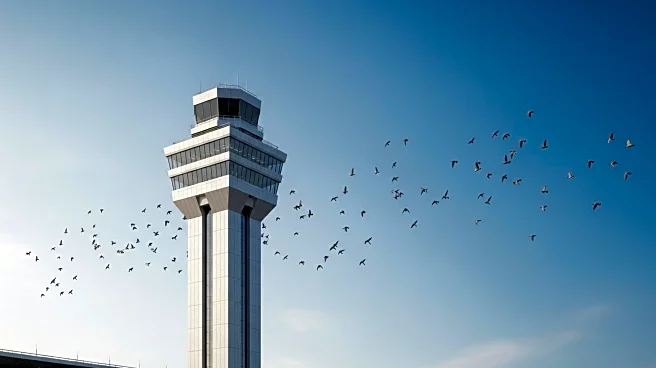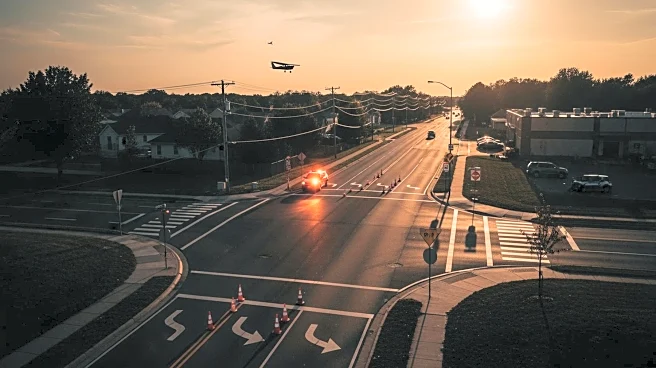What's Happening?
Munich Airport in Germany has resumed operations after being temporarily closed due to drone sightings. The closure affected at least 17 flights, impacting nearly 3,000 passengers. The airport also diverted 15 flights to nearby cities such as Stuttgart, Nuremberg, Vienna, and Frankfurt. The drones were first detected at 21:30 local time and again an hour later, prompting the airport to suspend departing flights and close ahead of its usual curfew. The incident is part of a series of recent drone sightings across Europe, which have led to airport closures in Copenhagen and Oslo.
Why It's Important?
The disruption at Munich Airport highlights the growing concern over drone activity near critical infrastructure, such as airports. These incidents can lead to significant operational challenges and financial losses for airlines and airports, as well as inconvenience for passengers. The situation underscores the need for enhanced security measures and regulations regarding drone usage near sensitive areas. The broader implications include potential impacts on international travel and trade, as well as heightened tensions between countries over airspace security.
What's Next?
Authorities are likely to investigate the source and purpose of the drones to prevent future occurrences. There may be increased pressure on European governments to implement stricter drone regulations and improve detection technologies. Airlines and airports might also review their emergency response protocols to better handle similar situations. Additionally, international discussions on airspace security could be prompted by these incidents, potentially leading to collaborative efforts to address drone-related threats.
Beyond the Headlines
The incident raises ethical and legal questions about the use of drones and the balance between technological innovation and public safety. It also highlights the potential for drones to be used in espionage or other malicious activities, necessitating a reevaluation of current policies and international agreements on drone usage. Long-term, this could lead to advancements in drone detection and countermeasure technologies, as well as shifts in public perception regarding drone safety.










